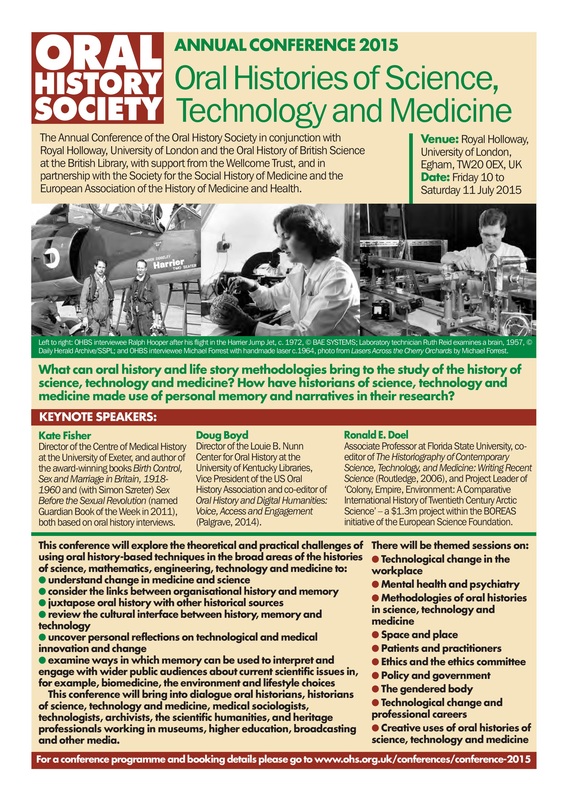A particularly fascinating and thought-provoking session that I was honoured to chair was titled ‘Creative Uses of Oral History’. Filmmaker Juliet Brown discussed how she used oral histories in the making of her film Ecocide - Voices from Paradise, which tells the story of the ground zero BP oil spill in 2010 through the testimonies of those who live in the local community. Marta Moreno spoke about her work with the Reminiscence Theatre Archive at the University of Greenwich and the oral history and performance project Can we Afford the Doctor? which was made in the 1980s by Pam Schweitzer about the establishment of the National Health Service (NHS). Maria Everett shared her personal experience as an actor with the Reminiscence Theatre Company at the University of Greenwich and re-using the original oral history material from Can we Afford the Doctor? last year to re-create the performance and its relevance to new audiences today. These three presentations were stunning examples of the potential of oral history projects to have a powerful and meaningful impact, both on those who participate in them, as well as those who witness the finished and crafted works of art that oral histories can inspire.
|
The 2015 oral history conference ‘Oral Histories of Science, Technology and Medicine at Royal Holloway, University of London, July 11-12, covered a diverse range of topics spanning agency in the lives of British scientists, changing treatments and attitudes in the field of mental health, and storytelling in veterinary oral histories, to name a few.
A particularly fascinating and thought-provoking session that I was honoured to chair was titled ‘Creative Uses of Oral History’. Filmmaker Juliet Brown discussed how she used oral histories in the making of her film Ecocide - Voices from Paradise, which tells the story of the ground zero BP oil spill in 2010 through the testimonies of those who live in the local community. Marta Moreno spoke about her work with the Reminiscence Theatre Archive at the University of Greenwich and the oral history and performance project Can we Afford the Doctor? which was made in the 1980s by Pam Schweitzer about the establishment of the National Health Service (NHS). Maria Everett shared her personal experience as an actor with the Reminiscence Theatre Company at the University of Greenwich and re-using the original oral history material from Can we Afford the Doctor? last year to re-create the performance and its relevance to new audiences today. These three presentations were stunning examples of the potential of oral history projects to have a powerful and meaningful impact, both on those who participate in them, as well as those who witness the finished and crafted works of art that oral histories can inspire.
1 Comment
4/23/2023 09:40:50 am
I wanted to express my gratitude for your insightful and engaging article. Your writing is clear and easy to follow, and I appreciated the way you presented your ideas in a thoughtful and organized manner. Your analysis was both thought-provoking and well-researched, and I enjoyed the real-life examples you used to illustrate your points. Your article has provided me with a fresh perspective on the subject matter and has inspired me to think more deeply about this topic.
Reply
Leave a Reply. |
Archives
November 2023
|

 RSS Feed
RSS Feed